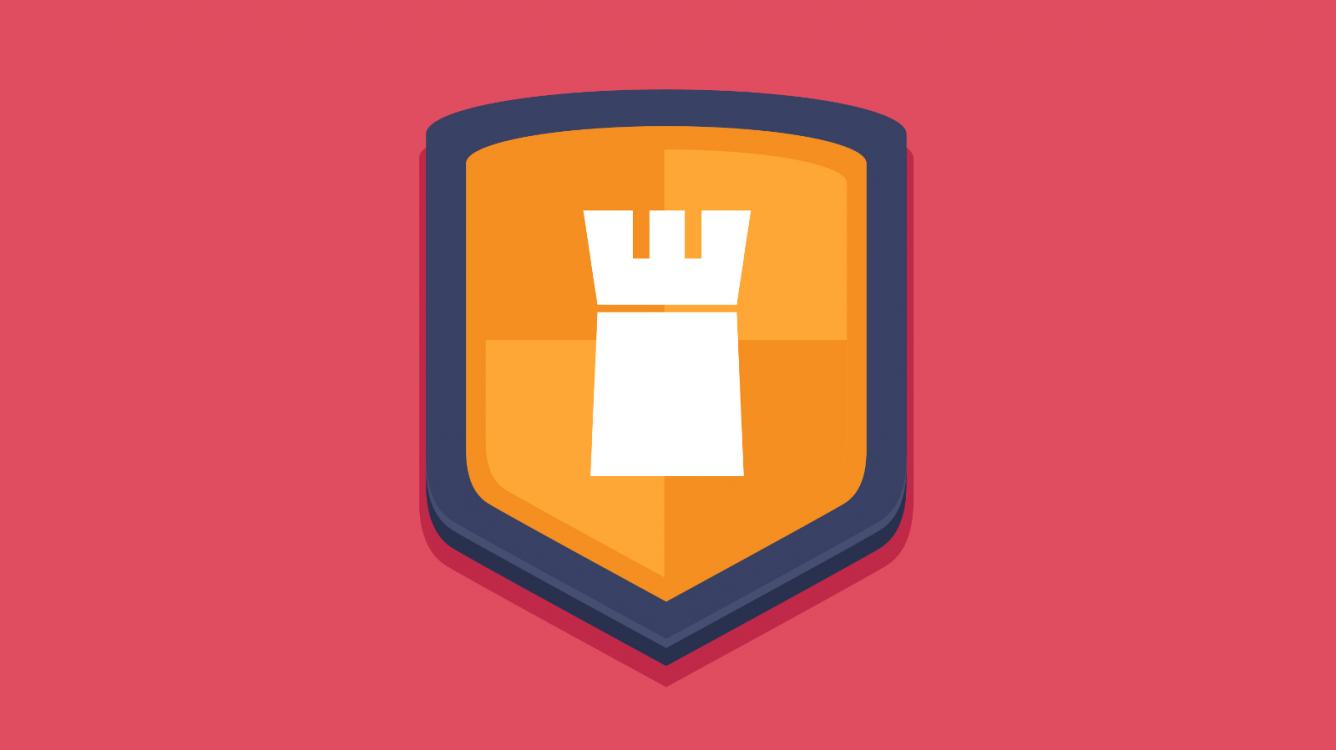
Study Plan For Intermediate Players: The Opening!
Target Skill Range: Intermediate (Rated 1400-1799)
Acquire the knowledge you need to approach the opening with confidence and achieve success!
Tasks:
- Extend your base knowledge of "tournament openings."
- Aim for consistency.
- Learn the concept of transposition.
- Learn these critical pawn structures and their basic plans.
- Stay sharp and learn to avoid opening blunders.
- Understand planning and development.
- Complete an opening lesson.
Intermediate players should be taking the steps to develop a consistent approach and see that "planning" in chess begins as early as move one.
1. Extend your base knowledge of "tournament openings."
An intermediate player should be able to recognize most "main line" chess openings, even if he/she hasn't yet mastered them.
Use our Game Explorer and Openings Book features to learn the first 7-10 moves of the following list of openings, commonly played by master-level chess players. This should also help guide you if you are still unsure of a consistent approach for your own games (see Task #2).
Additionally, you can check out in-depth video lessons with challenge questions here.
Learn 1.e4 openings:
- The Ruy Lopez/"Closed" Spanish Main Lines
- The Ruy Lopez -- Marshall Attack
- The Scotch Game
- The Scotch - Mieses Variation
- The Classical Scotch
- The Scotch - Steinitz Variation
- French Defense
- French Defense -- Exchange Variation
- French Defense -- Winawer Variation
- French Defense -- Classical Main Line
- French Defense -- Tarrasch Variation
- The Caro Kann
- The Caro Kann -- Classical/Main Line
- The Caro Kann -- Advanced
- The Caro Kann -- Panov-Botvinnik Attack
- The Sicilian -- Open Sicilian
- The Sicilian -- Closed Sicilian
- The Smith-Morra Gambit
- The Alekhine's Defense
- The Scandinavian
- The Pirc/Modern Defense
- King's Gambit
Learn 1.d4 openings:
- The Nimzo-Indian Defense
- The Queen's Indian Defense
- The King's Indian Defense
- The Grunfeld Defense
- The Benko Gambit
- The Benoni Defense
- Slav Defense
- Semi-Slav Defense
Learn 1.c4 and/or 1.Nf3 openings:
2. Aim for consistency.
After learning and applying the basic principles to the opening you learned in the Study Plan for Beginners in your own games (and extending your knowledge of main line openings by completing Task #1), intermediate players should be ready to take some significant steps in the first stage of chess. This is not to say you should be studying hours of opening theory just yet, or even fully developing an opening repertoire, but choosing to play a consistent set of openings is now key.
As white, you need to decide to play only 1.e4 or 1.d4. We do not recommend players of this level choose to play 1.c4 or 1.Nf3 as the "mainstays" in their opening repertoire. This is because masterful play of the openings reached after 1.c4 or 1.Nf3 tends to require knowledge of many different transpositions (see Task #3) into both 1.e4 and 1.d4 openings.
For players who have already committed to 1.c4 or 1.Nf3 -- we recommend taking extra time for Task #3, as it directly pertains to playing your openings successfully. As black, you need to choose a consistent defense against both 1.e4 and 1.d4. See Task #2 for more information on the opening choices at your disposal. Get started with your new consistent approach right away!
or
3. Learn the concept of transposition.
Read this: Transpositions by GM Magesh Panchanathan
After grasping the concept of how opening lines can tranpose into one another in chess, try to recognize how/where transpositions occur in your own most commonly use openings. Make sure you understand the general plans associated with each exact position and pawn structure reached, regardless of the move order used to get there.
4. Learn these critical pawn structures and their basic plans.
Master-level players understand that knowledge of how to play a position, the ability to find a good plan, and being able to outplay your opponent from any position are much more important than memorizing opening theory.
So how do we acquire those skills? By approaching the opening - and the transition into the middlegame - the right way: Learning the pawn structures that dictate the plans of every position before we try to memorize opening theory!
Watch the video below to further your knowledge of the fundamental pawn structures in chess. Learn to recognize when and from what openings they occur:
Watch this: Pawn Structure 101: Every Opening Explained! by IM Daniel Rensch
5. Stay sharp and learn to avoid opening blunders.
The material for this task was selected from GM Gregory Serper's column. The articles below are appropriate for Intermediate players, and each one of them critical for your understanding; however, if you enjoy these articles, there can be no harm in reading more articles from Gregory's Writing, and we would strongly encourage ambitious players to do so.
- How to Lose a Game in 10 Moves or Less
- How to Lose a Game in 10 Moves or Less - Part 2
- How to Lose a Game in 10 Moves or Less - Part 3
- How to Lose a Game in 10 Moves or Less - Part 4
6. Understand planning and development.
Here your assignment is to solidify a "high level" understanding of openings and their impact on decision-making. Every chess opening and position requires certain types of development plans for your pieces, specific kinds of repeating plans for both white and black, and commonly seen tactical patterns special to those structures and positions alone.
Whether you have chosen to play any of the openings featured in the following videos is irrelevant. Watching the following lectures will not only improve your knowledge of those specific openings, but also instill the key elements planning from the opening. To see these principles in action, watch the following video lectures:
- Development Part 4: The Importance of Weaknesses by IM David Pruess
- Development Part 5: Quality by IM David Pruess
- Development Part 6: Getting Ahead by IM David Pruess
- Applying Principles in the King's Gambit by IM David Pruess
- Applying Principles in the King's Gambit II by IM David Pruess
- Applying Principles in the King's Gambit III by IM David Pruess
- The Complete Grunfeld: Introduction by FM Tiger Lilov
- The Complete Grunfeld: Majority by FM Tiger Lilov
- The Complete Grunfeld: Dynamic Provoking by FM Tiger Lilov
- The Complete Grunfeld: Piece Play by FM Tiger Lilov
- The Complete Grunfeld: Sidelines by FM Tiger Lilov
- The Complete Grunfeld: Exchange Sacrifice by FM Tiger Lilov
- The Complete Grunfeld: Example Game 1 by FM Tiger Lilov
- The Complete Grunfeld: Fischer's Masterpiece by FM Tiger Lilov
- The Complete Grunfeld: Finale by FM Tiger Lilov
- Getting Started with the Ruy Lopez 1 by GM Sam Shankland
- Getting Started with the Ruy Lopez 2 by GM Sam Shankland
- Getting Started with the Ruy Lopez 3 by GM Sam Shankland
After watching these required videos, if you enjoy learning opening principles in this way, you can search and sort our video library for more opening videos. New additions covering different types of openings are being added all the time!
Your next assignment is to search our opening columns, co-authored by GMs Magesh Panchanathan and Arun Prasad, for 3-5 articles on the opening of your choice. Read those articles as if they were your personal homework assignments from Magesh and Arun!
If you cannot find the opening you want, choose an opening you know nothing about, because again, the most important concept you are trying to instill into your thought process is how to recognize and execute high level plans in any structure or opening you are faced with. The critical thinking skills required to choose good plans in openings you don't know is in many ways more important than executing ideas in the openings you have memorized and play everyday. Good luck!
7. Complete an opening lesson.
Chess.com has many Lessons on the Opening; however, we have selected this specific course for learners at your level. If you can complete this course and score over 70%, you should be playing the opening stage at a 1400 level or higher. Either click the green button or follow the link below.



